From Iran to LatAm, Eurasia lists this year's 9 biggest flashpoints
From the Middle East to Asia and America, geopolitical tensions have been on the rise — and 2020 will prove to be a tipping point, according to the Eurasia Group.
In its recently released ‘Top Risks 2020’ report, co-authors Ian Bremmer and Cliff Kupchan laid out their concerns over multiple risks surfacing around the world, and warned that the year ahead looks troubling.
“We’ve lived with growing levels of geopolitical risk for nearly a decade, but without a true international crisis,” they wrote. “Outside of geopolitics, global trends have been strongly favorable. That’s now changing.”
Risk 1: ‘The most volatile year of politics’ in America
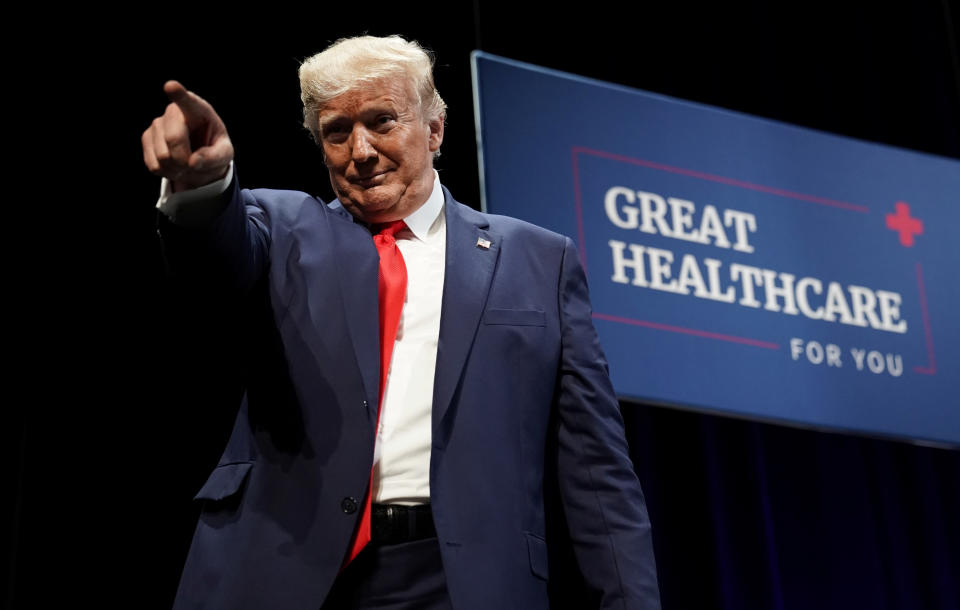
The authors’ first worry is about the how increasing polarization in the U.S. could lead to the public losing faith in election outcomes. With President Donald Trump impeached by the House of Representatives, they expect him to be acquitted by the Senate.
However, Trump’s anticipated acquittal “will delegitimize the November presidential election” in a way that demoralizes Democrats while emboldening the president and his supporters. Meanwhile, Eurasia also expects more external inference in the U.S. elections — “especially from Russia” — which the President and the Senate will do little address.
The combinations of the events above would then lead “a large percentage of the population” to perceive the November elections as “rigged,” they stated.
And if legal challenges are raised — a la the infamous outcome of the 2000 general election — a conservative-leaning Supreme Court could rule in Trump’s favor — which would catalyze even more discontent, they added.
“It will be the worst political climate for a national election that the U.S. has experienced since the (effectively failed) election of 1876,” they state, referring to the highly controversial election in which Republican Rutherford B. Hayes defeated Democrat Samuel J. Tilden.
Risk 2: America, China and the “virtual Berlin Wall”
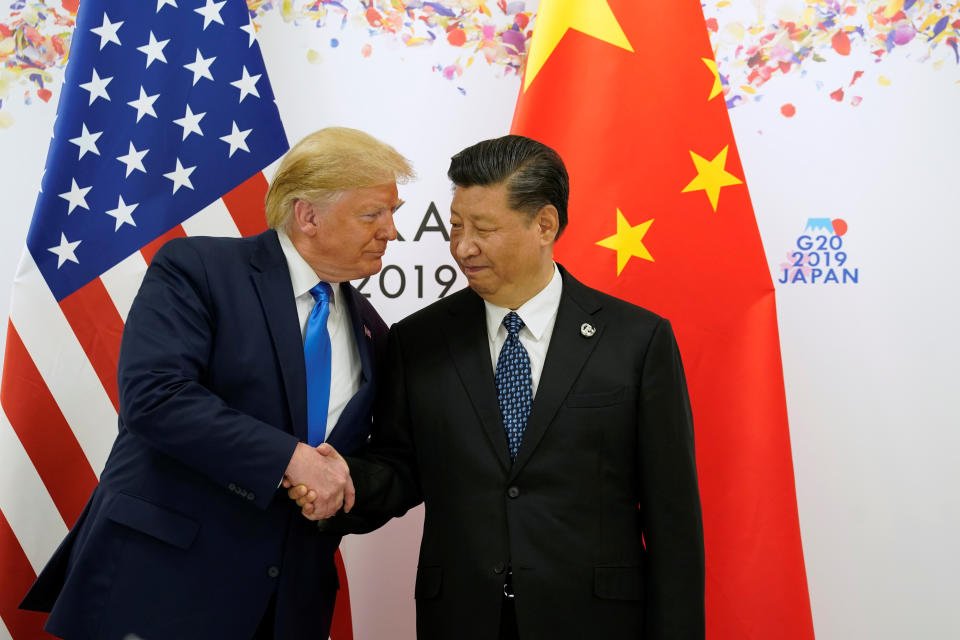
The authors wrote that tense U.S. and China relations may cast a “geopolitical chill over global business,” and steepen the divide between the two countries’ political structures.
The U.S. and China “decoupling” their relationships in the tech space is “the single most impactful geopolitical development for globalization since the collapse of the Soviet Union,” Eurasia’s analysts state. It means vast tech sector, as well as various other industries from entertainment to academic research, is going to feel the pain from having to choose between the two superpowers.
“The big question: Where will the new virtual Berlin Wall go up? Which side will countries choose?” the authors wrote. Driven by the trade war and competition over technologies like 5G are driving these decoupling, but warn that “[a]s the rifts widen, they’ll risk becoming permanent, casting a geopolitical chill over global business.”
And eventually, the tensions between the two countries “will lead to a more explicit clash over national security, influence, and values,” they add.
Risk 3: Multinationals aren’t that powerful
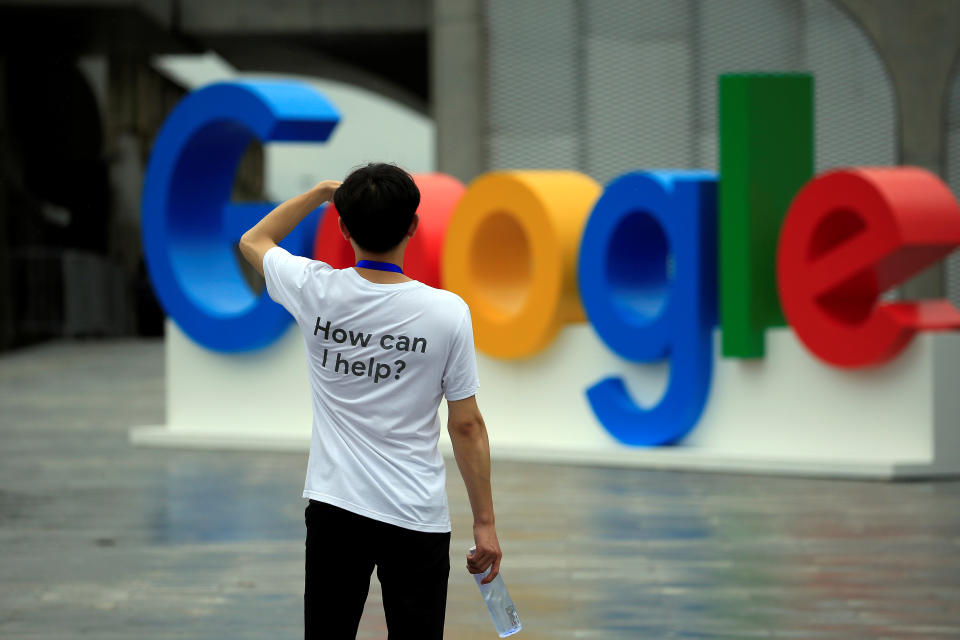
Eurasia points out that multinational companies (MNCs) were once believed to be the champions of global trade, and perceived as helping to fill the gaps left behind by governments on issues like climate change and poverty relief.
But in reality, they haven’t exactly been able to do much.
World-spanning companies account for more than 50% of global trade — one-quarter of global employment — making them what the firm’s analysts call “influential political actors.” Still, they haven’t been effective on big issues like climate change and trade liberalization — instead leaving all that up governments that are increasingly “reasserting themselves, presenting new risks to the capital and assets of corporations.”
Rising anti-trade populist movements, calls for breaking up Big Tech, and rising anti-corporate sentiment was eroding big companies’ ability to effect change, Eurasia argues, and “won’t be as much help with global governance or supporting the global order.”
Risk 4: Things get messier in India
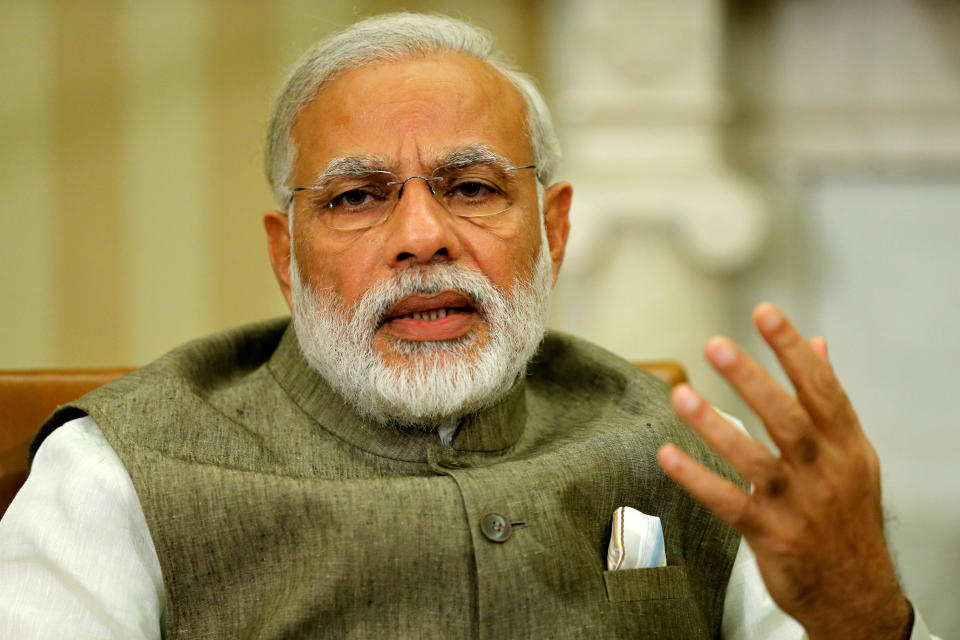
India’s intensifying communal and sectarian tensions domestically, on top of foreign policy and economic setbacks, are also a global concern.
Eurasia noted the various issues Prime Minister Narendra Modi and his government have been grappling with — from revoking the special status for Jammu and Kashmir to stripping 1.9 million people of citizenship to sputtering economic growth — and warn that the country faces a “troubled course in 2020.”
Risk 5: An increasingly assertive European Union

New leadership within European organizations has resulted in the European Union (EU) becoming more assertive, which Eurasia warned could backfire.
They argue that the EU’s assertiveness in pushing for compliance with thee climate change agreement, or its crackdown on North American tech giants, could annoy the U.S. They warned that if the EU becomes “too aggressive,” the U.S. is likely to counter equally.
Risk 6: Climate change

Governments have struggled to keep up with climate change agreements. With activists increasing pressure on investors and companies, Eurasia believes there will be disruptions.
“Even countries whose political leaders have ambitious climate plans won’t have it easy” meeting existing targets they’ve signed as part of the Paris agreement, the authors wrote.
“Some will face an anti-elite backlash to climate action, as we’ve seen in France. Others will struggle to meet existing high-bar targets, as in Germany,” Eurasia noted.
This means that a “growing percentage of investors, companies and society at large,” unhappy with the results, may spark more public unrest.
Risk 7: A Middle East that gets more unstable
Failing U.S. foreign policy in Iran, Iraq and Syria will drive regional risk this year, Eurasia predicted in its report, with Iran taking center stage.
Following the assassination of top Iranian commander Qassem Soleimani, Iraq — which is increasingly under Tehran’s sway — is likely to be a flashpoint. Meanwhile, Syria’s ongoing turmoil may lead to “feckless” U.S. policy “to the detriment of the regional political and economic order,” the authors warned.
Risk 8: Toil and trouble in Latin America
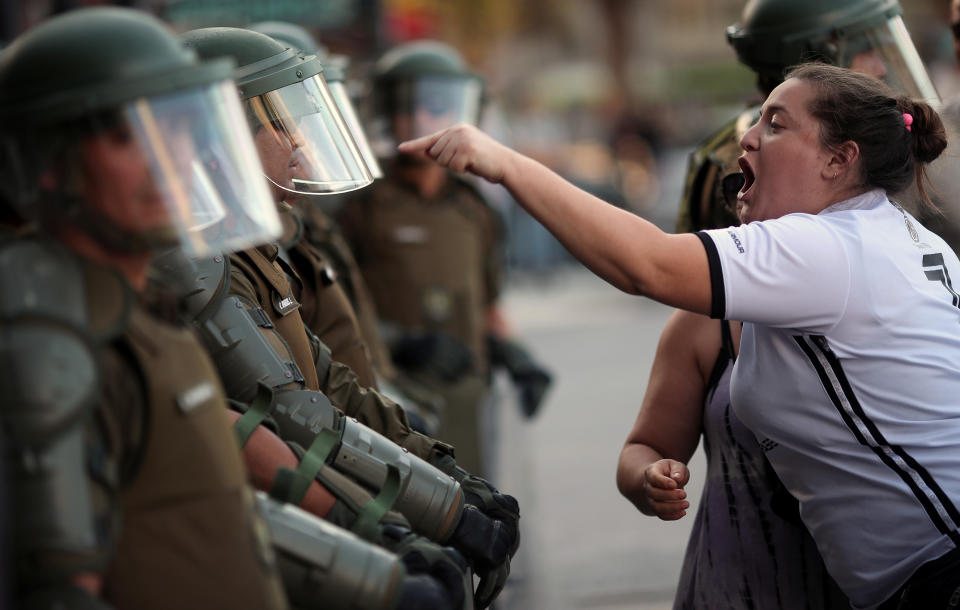
Rising discontent across Latin America is also something to watch, with social strife taking a toll across the continent.
Public anger is boiling from Argentina to Ecuador, and “will keep the risk of political instability high across the region,” Eurasia stated. “Voter complaints include sluggish growth, corruption, and low-quality public services. Even worse for governments, new and vulnerable middle classes want more spending on social services, and Latin American societies are deeply polarized.”
Risk 9: Turkey’s Erdogan
Recep Tayyip Erdogan, Turkey’s controversial ruler, is suffering from declining popularity that could “lead him to lash out.”
“Erdogan has a long history of provocative behavior in response to threats, sparking confrontation with both foreign and domestic critics. This year, his weakness will lead him to lash out” and damage an already fragile economy. “Turkey gets worse before it gets better,” the firm added.
Aarthi is a reporter for Yahoo Finance. She can be reached at aarthi@yahoofinance.com. Follow her on Twitter @aarthiswami.
Read more:
The U.S. response to China’s new Silk Road will be a 'legacy of the administration'
The UN is in financial distress, and the US still owes $491 million for 2019
Read the latest financial and business news from Yahoo Finance
Follow Yahoo Finance on Twitter, Facebook, Instagram, Flipboard, SmartNews, LinkedIn, YouTube, and reddit.


